Let's talk Miniature Schnauzers
Official name: Miniature Schnauzer
Drooling tendencies
2 out of 5Shedding Level
1 out of 5Energy level*
4 out of 5Compatibility with other pets
3 out of 5Warm weather?
2 out of 5Suited to apartment living
2 out of 5Family pet?*
3 out of 5Can stay alone
2 out of 5
| Male | Female |
|---|---|
| Height | Height |
| 30 - 35 cm | 30 - 35 cm |
| Weight | Weight |
| 4 - 8 kg | 4 - 8 kg |
| Life stages | |
|---|---|
| Puppy | Adult |
| 2 to 10 months | 10 months to 8 years |
| Mature | Senior |
| 8 to 12 years | From 12 years |
| Baby | |
| Birth to 2 months | |
Drooling tendencies
2 out of 5Shedding Level
1 out of 5Energy level*
4 out of 5Compatibility with other pets
3 out of 5Warm weather?
2 out of 5Suited to apartment living
2 out of 5Family pet?*
3 out of 5Can stay alone
2 out of 5
| Male | Female |
|---|---|
| Height | Height |
| 30 - 35 cm | 30 - 35 cm |
| Weight | Weight |
| 4 - 8 kg | 4 - 8 kg |
| Life stages | |
|---|---|
| Puppy | Adult |
| 2 to 10 months | 10 months to 8 years |
| Mature | Senior |
| 8 to 12 years | From 12 years |
| Baby | |
| Birth to 2 months | |
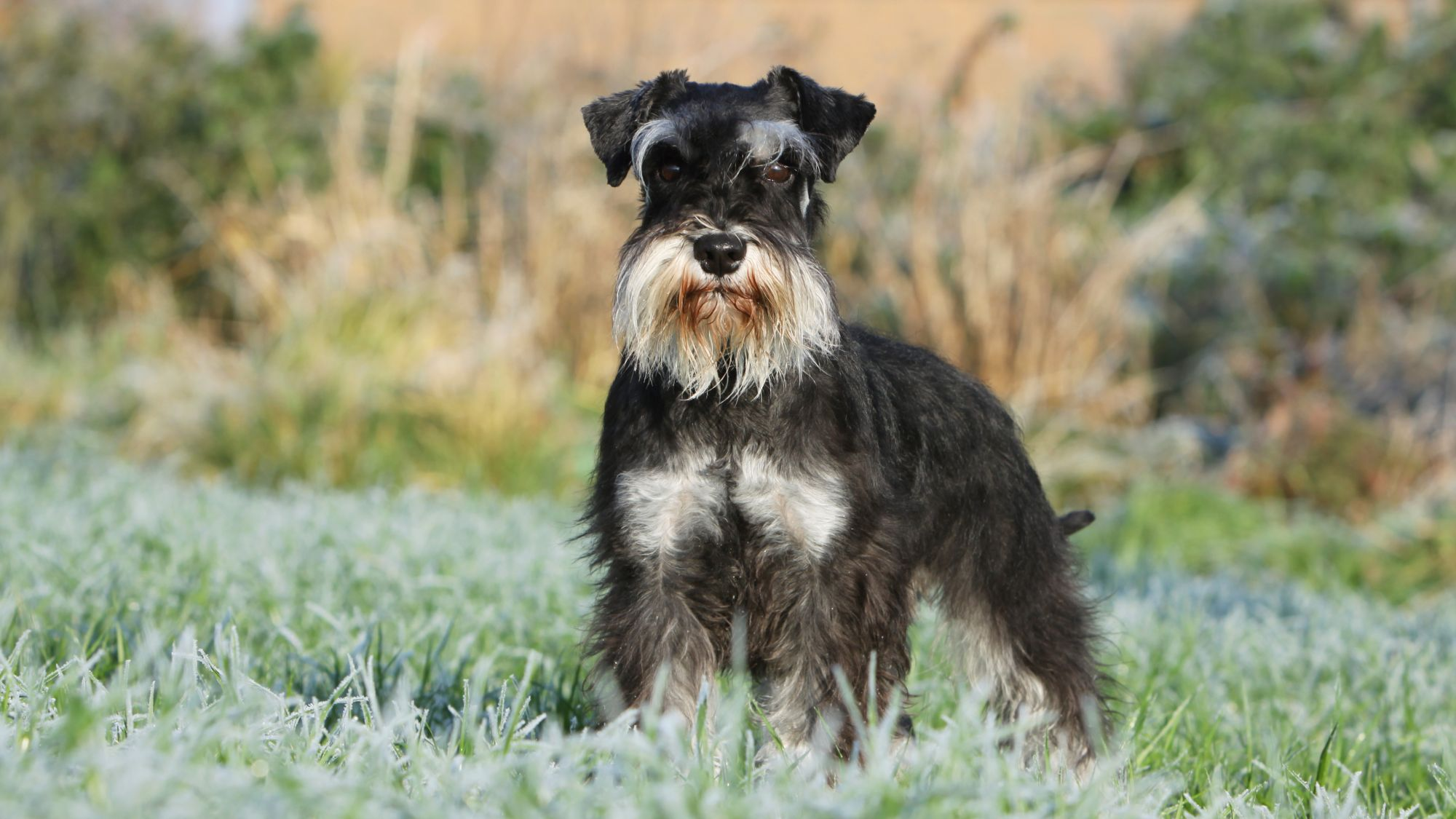
Get to know the Miniature Schnauzer
All you need to know about the breed
With their quizzical eyebrows and bushy beard, the Miniature Schnauzer looks like a distinguished old gentleman even when they're young—just missing a silk waistcoat and a pocket watch. The smallest member of the Schnauzer family shares its distinctive features and thick, wiry coat with the Standard and Giant Schnauzer varieties. However, the Miniature Schnauzer’s manageable size, alert nature, adaptability, and ability to get along with other animals and children (once trained, of course) have made them an even more popular choice and a family favorite.
Playful and tenacious by nature (in a good way), Miniature Schnauzers love playing games and learning tricks, therefore they require a lot of exercise.
Their abundant coats can come in black, white, black and silver, or salt and pepper. To keep them in good condition, Miniature Schnauzers require regular trips to a professional groomer as well as basic brushing at home—AKA the perfect excuse for cuddles.
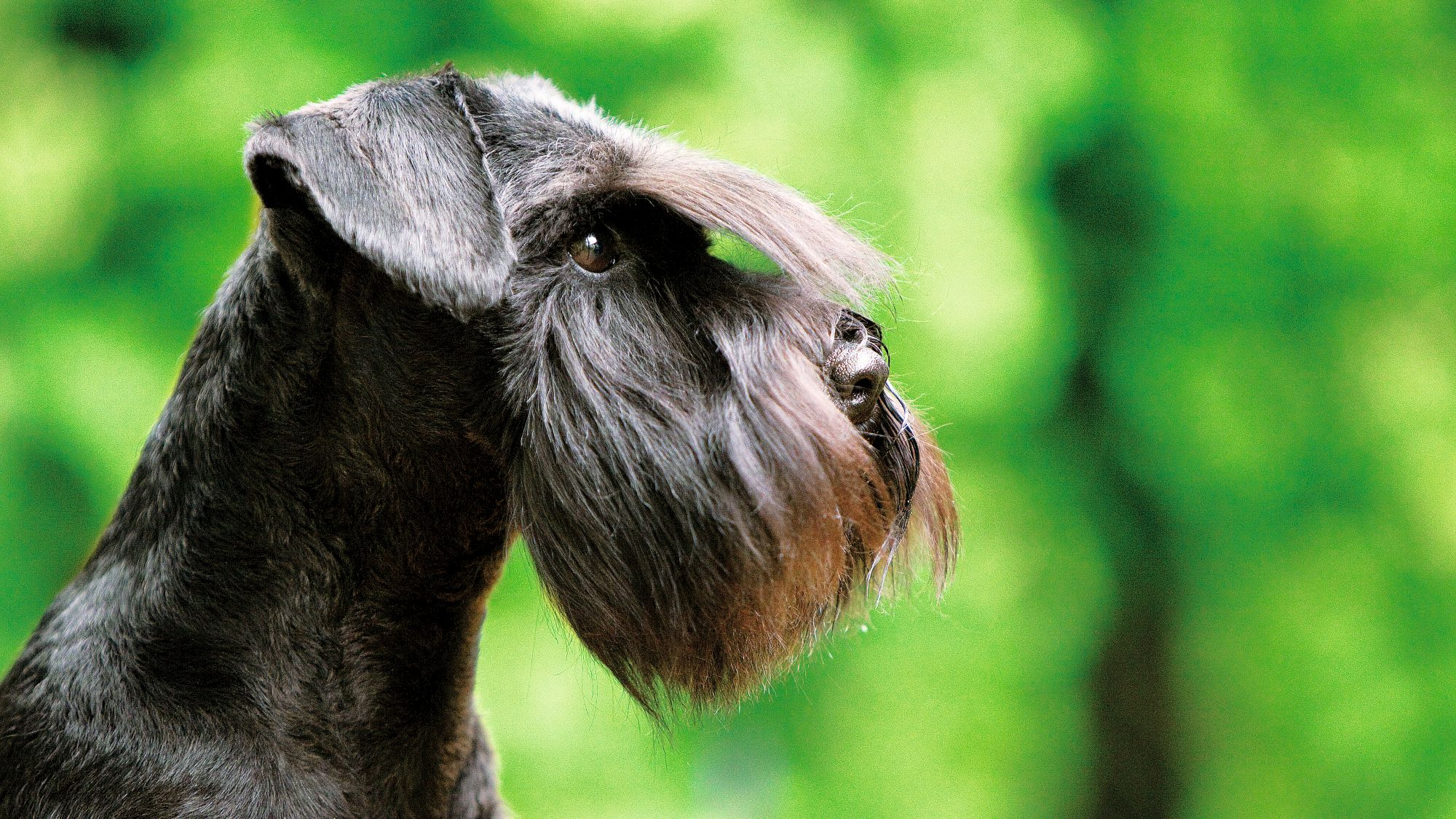
Facts about the Miniature Schnauzer
1. Prey Instinct
Miniature Schnauzers were originally bred as farm dogs to catch rats and other vermin. If smaller animals are around, it’s a good idea (particularly for the smaller animals) to keep them on the lead!
2. Popularity Contest
According to The American Kennel Club (AKC), the Miniature Schnauzer is the runaway favorite of the three breeds. It could be due to their more colorful coats or their more manageable size.
History of the breed
This stocky little dog originated in Germany in the late 19th century, when Standard Schnauzers were crossed with other, smaller breeds. Miniature Schnauzers are intelligent, lively and sociable – and they make excellent guard dogs. Yes, you read that correctly. Their tendency to bark, which can be corrected with early training, can have its advantages.
The Miniature Schnauzer shares its long mustache and, bearded appearance with its ancestor, the Standard Schnauzer. For the entire Schnauzer family, it’s all about that bearded muzzle, which even gives the breed its name, derived from the German word "Schnauze," meaning muzzle. The Standard Schnauzer originated in Germany as far back as the 14th century. It was developed as a farm dog to catch rats and other vermin and was originally known as the Wire-Haired Pinscher.
The Miniature Schnauzer was created by crossing the Standard Schnauzer with smaller breeds like Poodles, Affenpinschers, Miniature Pinschers, and possibly Fox Terriers or Scottish Terriers—though the exact breeds and reasons for the crossbreeding remain uncertain. Despite this unclear origin, what we do know is that the Miniature Schnauzer was first officially recorded as a breed in 1888 in Germany and made its debut at a dog show as a distinct breed in 1899. Since then, it has evolved into a modern family favorite.
From head to tail
Physical characteristics of Miniature Schnauzers
1.Ears
2.Face
3.Coat
4.Fur
5.Tail
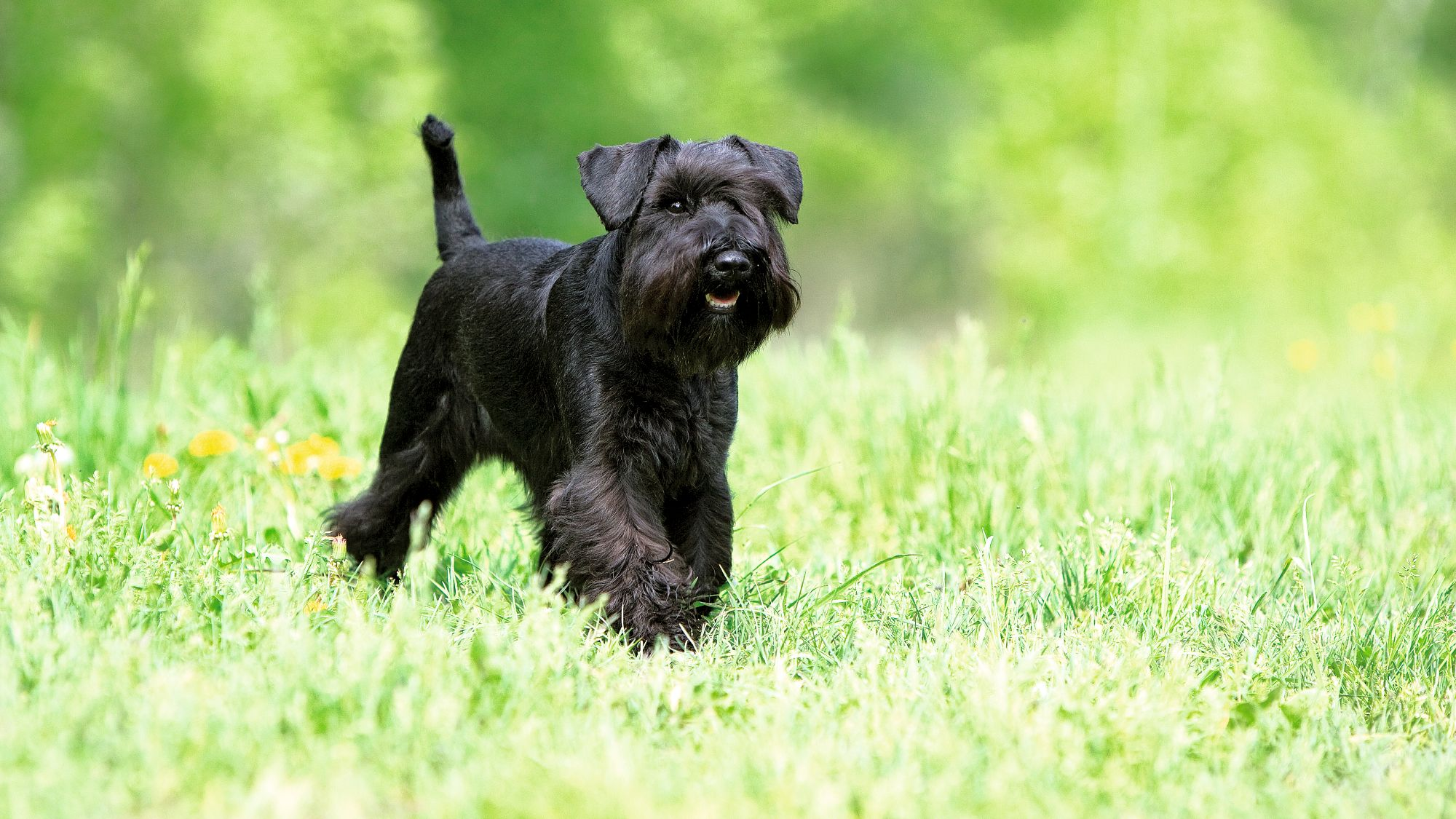
Things to look out for
From specific breed traits to a general health overview, here are some interesting facts about your Miniature Schnauzer
Staying active
Even though Miniature Schnauzers are robust dogs, there are a few health issues that they can be prone to, such as certain eye diseases like congenital cataracts later in life. Regular check-ups with the vet will ensure that your Miniature Schnauzer stays in top form and that any health concerns are spotted and can be treated quickly.
On The Scales
Miniature Schnauzers, especially when neutered, are prone to becoming overweight. Therefore, their weight needs to be monitored regularly, just like any small dog. Miniature Schnauzers have a lively and energetic manner so they need a daily kibble amount to match. While they are content living in apartments, they still require plenty of exercise, and a good mix of walking, running and playing- for mental stimulation as well as burning energy.
Tailored nutrition for Miniature Schnauzers
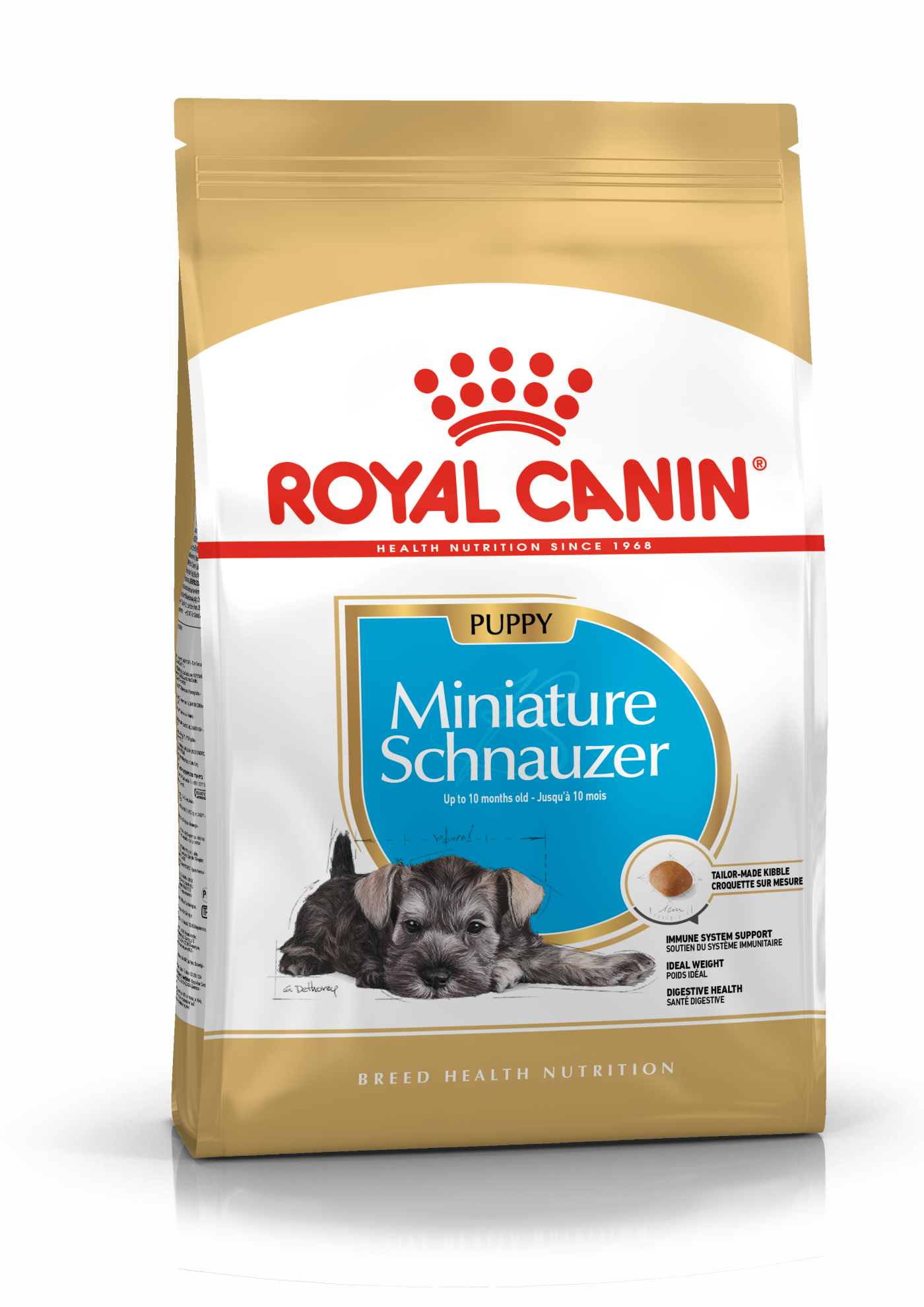
When choosing food for a Miniature Schnauzer, there are many factors to consider: their age, lifestyle, activity level, physiological condition, and health including potential sickness or sensitivities. Food provides energy to support the Miniature Schnauzer's vital functions. A complete nutritional formula should have a balance of nutrients to avoid any deficiencies or excess in their diet. Also, clean and fresh water should be available at all times to support good health. In hot weather conditions make sure you are letting your dog have plenty of breaks and always have water on hand so they can stay hydrated. The following recommendations are for healthy animals. If your dog has health problems, please consult your veterinarian who may recommend an exclusively veterinary diet.
Immune System Support
As your Miniature Schnauzer grows, they will experience big changes. During this period, the puppy's immune system gradually develops therefore the formula supplies a complex of antioxidants to support their natural defenses.
Ideal Weight
Formulated with precise nutrients, a moderate fat level and L-carnitine to support healthy weight gain during the growth period.
Digestive Health
Supporting digestive health and a balanced intestinal flora via high quality proteins and prebiotics.
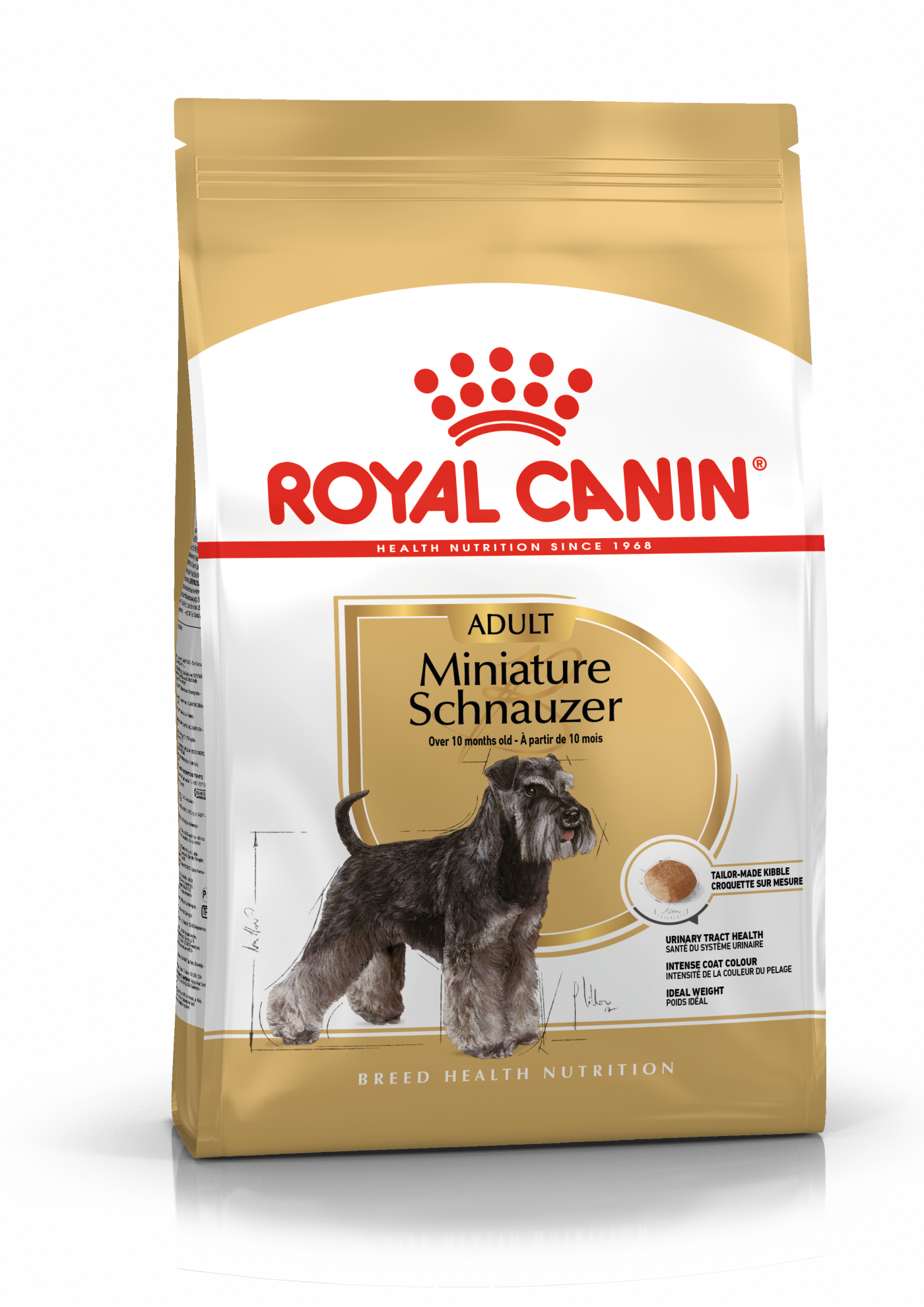
The main nutritional goals for adult Miniature Schnauzers are:
Healthy Skin
Nutrition plays a major role in the maintenance of skin and coat health. The formula helps support the skin's role as a barrier via a an exclusive complex of nutrients (EPA, DHA and Vitamin A).
Intense Coat Color
Miniature Schnauzer's have a very intense coat color, and nutrition can play a vital role in maintaining the intensity. The natural color is maintained by a tailored level of amino acids.
Ideal Weight
Excessive weight gain can create many health issues for Miniature Schnauzer's. Therefore, appropriate nutrition is crucial in maintaining ideal bodyweight.
Exclusive Kibble
The kibble is designed to make it easy for the breed to pick up and chew, catering to their scissor bite.
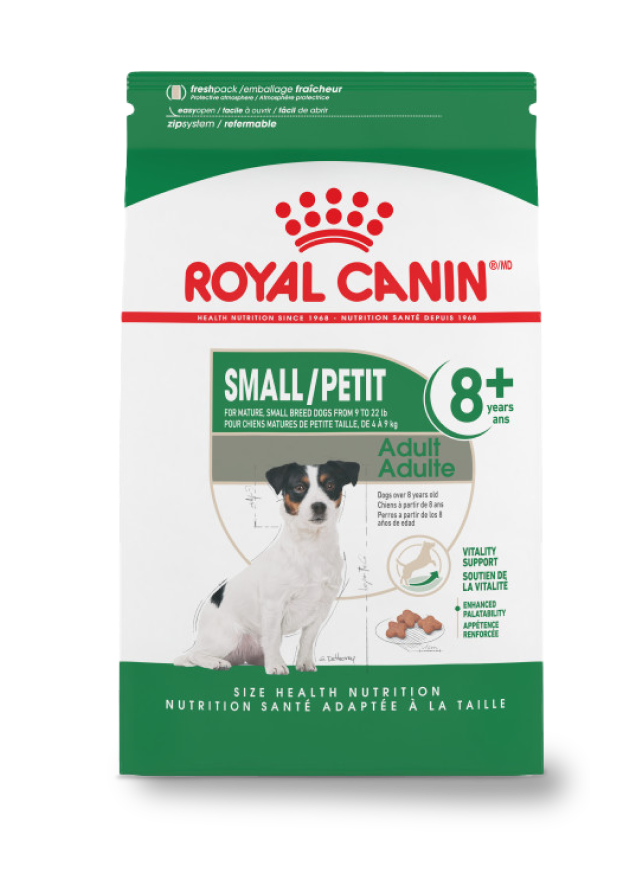
Miniature Schnauzers show the first signs of aging after turning 8 years old. A formula enriched with antioxidants can help maintain their health and energy, while an adapted phosphorus content will support their renal system. Aging comes with changes in digestive capacities and specific nutritional requirements, so food for older Miniature Schnauzers should have the following characteristics:
Vitality Support
Formulated with nutrients and a complex of antioxidants to help keep small breed dogs active as they age.
Enhanced Palatability
Satisfies the fussy appetite of small dogs with a special formulation and exclusive flavors.
Adapted Energy
Helps maintain a healthy weight in small dogs by meeting their high energy needs while using L-carnitine to promote fat metabolism.
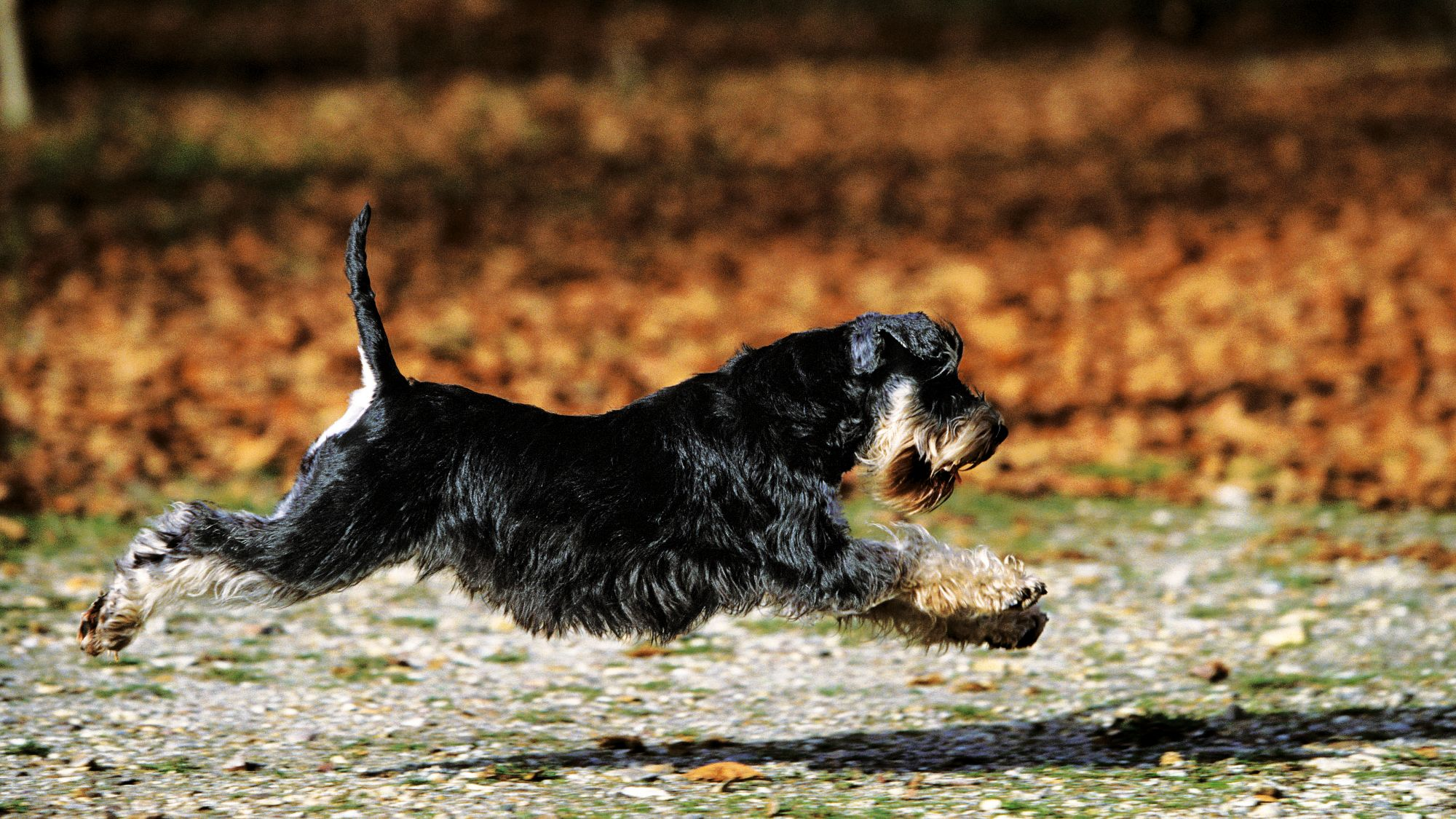
Caring for your Miniature Schnauzer
Grooming, training and exercise tips
7/7
Frequently Asked Questions about the Miniature Schnauzer
Yes to an extent. Miniature Schnauzers are a lively and active breed who like to share their excitement with a bark or two. If your Miniature Schnauzer is a bit more vocal than you anticipated then early training can help.
While Miniature Schnauzers look hairy, they actually shed very little.
Other breeds that might interest you
Read more on this topic
Sources
- Royal Canin breed https://www.royalcanin.com/us/dogs/breeds/breed-library
- FCI breed pages http:// www.fci.be/en/Nomenclature/Default.aspx
- Banfield Pet Hospital https://www.banfield.com/pet-healthcare/additional-resources/breed-information/dog-breeds
- Wisdom panel breed pages https://www.wisdompanel.com/en-gb/breed-library
- American Kennel Club https://www.akc.org/dog-breeds
Like & share this page